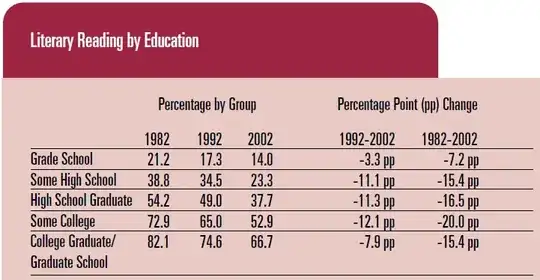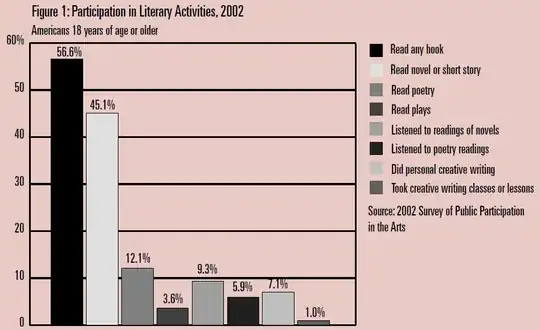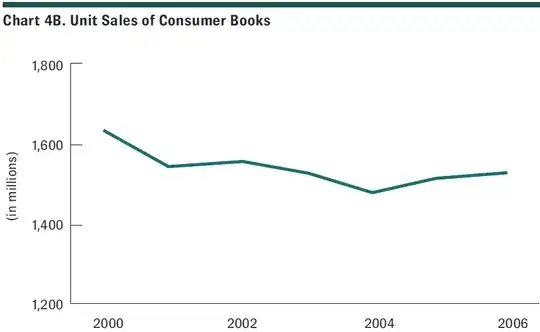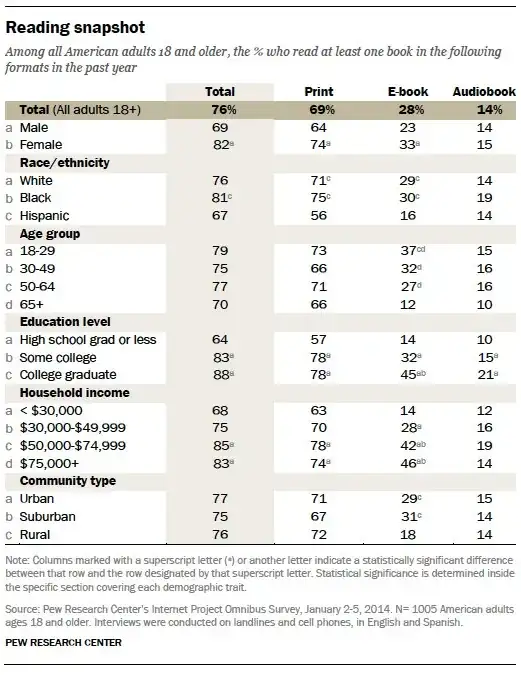I've seen this statistic reported on several sites (for example, Those Who Don't Build Must Burn and Want To Do Meaningful Work? Keep Reading. Literally), along with a list of other startling numbers.
- 33% of high school graduates never read another book for the rest of their lives.
- 42% of college graduates never read another book after college.
- 80% of U.S. families did not buy or read a book last year.
- 70% of U.S. adults have not been in a bookstore in the last five years.
- 57% of new books are not read to completion.
According to the Mental Floss article Who Reads Books? these numbers came from a 2003 survey conducted by an organization called the Jenkins Group. That article mentions that they've been unable to uncover any explanation of the results, and I haven't been able to find the original survey myself. (Do a search for some of the phrases in the bulleted list above and you'll see that the survey has been quoted so many times that it makes finding anything useful via a Google search very difficult.)
My own very biased and unscientific survey of "a bunch of people that I know" makes me skeptical of the reported figures. My question has two parts:
- Has anyone verified (or debunked) the results of the original survey? (If anyone can even find it.)
- A lot has changed since 2003 (Harry Potter, Hunger Games, ebooks). Have there been any more recent surveys that show a decline in the statistics reported by the Jenkins Group?



